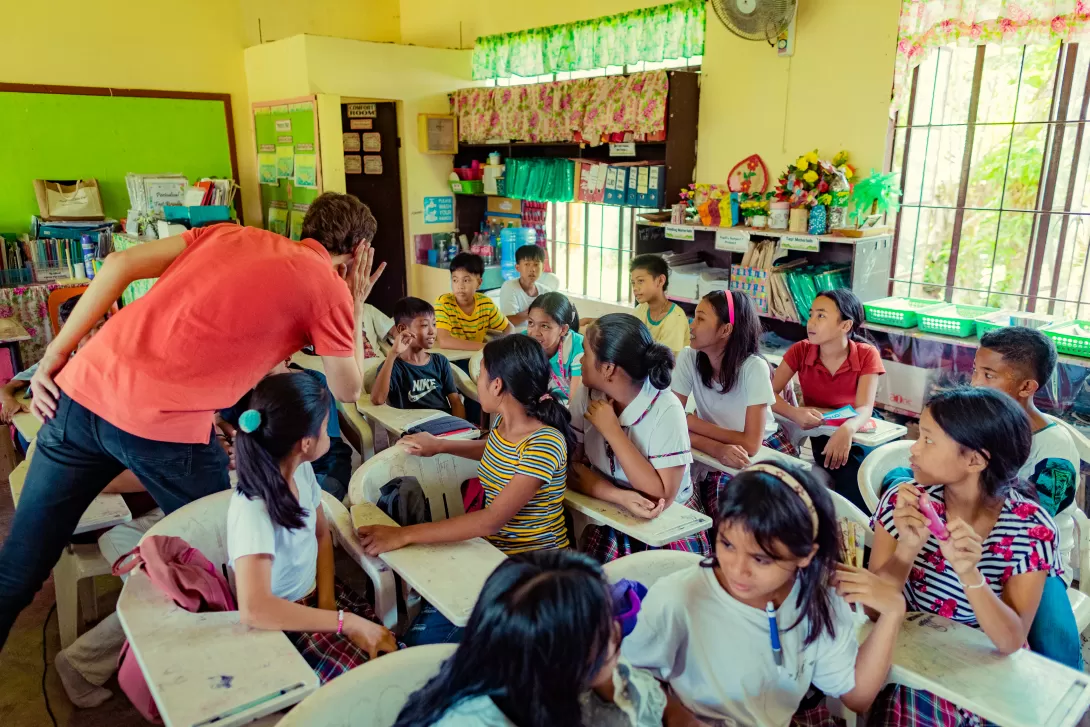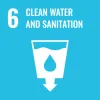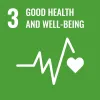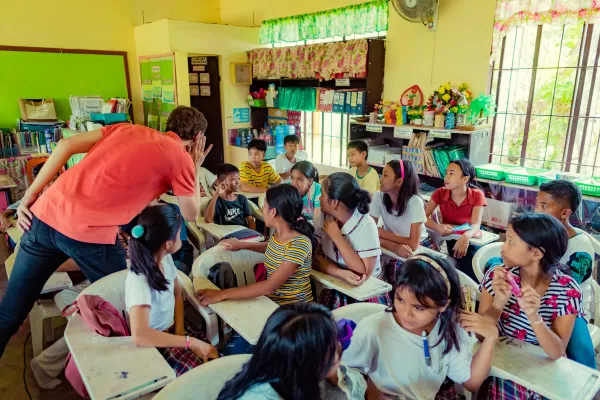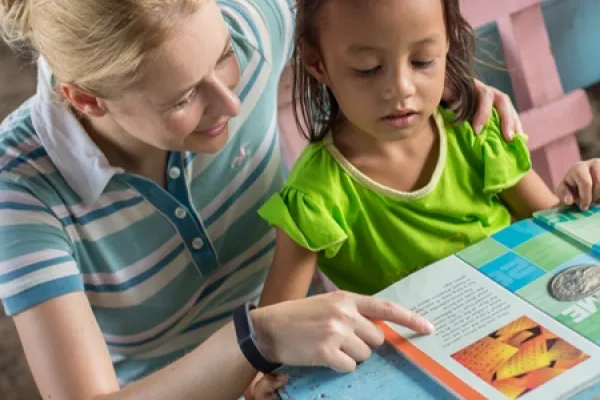Overview
Onderwijs is een van de meest effectieve manieren om de onderbediende gemeenschappen van de Filipijnen te ondersteunen die door armoede worden getroffen. Als vrijwilliger in het onderwijsprogramma in de Filipijnen, zullen vrijwilligers lokale leraren helpen bij het ontwikkelen van de lees-, schrijf- en spreekvaardigheden van leerlingen in het Engels. Er worden ook extra lessen gegeven voor wiskunde en wetenschap. Er worden ook stages aangeboden in scholen voor speciaal onderwijs (SPED) om leraren te helpen bij het begeleiden van leerlingen met fysieke en mentale uitdagingen. Speciale scholen die dove, stomme en autistische kinderen begeleiden en begeleiden, hebben ook enthousiaste vrijwilligers nodig. Een vervullende en impactvolle manier om plattelandsgemeenschappen te helpen, vrijwilligerswerk voor Filipino's zal zeker een leerzame ervaring zijn voor iedereen.
Het Teaching Project werd gestart als reactie op de oproep van openbare scholen voor buitenlandse vrijwilligers die diensten kunnen verlenen. De scholen geloven dat buitenlandse vrijwilligers een positieve impact hebben op de leerlingen, als rolmodellen en inspiratiebronnen. Ze helpen de kinderen ook hun Engelse taalvaardigheid te verbeteren. Het project kan je uit je comfortzone halen, omdat je elke dag actief les moet geven aan veel kinderen. De eerste week is belangrijk. Het zal je in staat stellen om je leerlingen te leren kennen en te zien hoe je beter kunt inspelen op hun behoeften. We moedigen je aan om het initiatief te nemen en proactief te zijn, zodat de school weet dat je klaar bent om taken op je te nemen die je aankunt. Je zult observeren hoe dingen gedaan worden en je kunt vragen stellen over dingen die je niet helemaal begrijpt. De klasleraar is altijd beschikbaar om je te ondersteunen tijdens je programma.
Voorbeeld van plaatsingsprofiel: Tugop Elementary School
Tugop Elementary School ligt in het landelijke dorp Barangay Tugop in de gemeente Tanauan, Leyte. De school is bereikbaar per jeepney en motor. De reistijd bedraagt 45-60 minuten, afhankelijk van het tempo van de voertuigen. Dit is een openbare school onder toezicht van het ministerie van Onderwijs. Het is er om de gemeenschap van Tugop te dienen.
Het schoolpersoneel bestaat uit de schooldirecteur en basisschoolleraren, inclusief de kleuterleidster, met in totaal 207 leerlingen. Bij zorgen tijdens het project wordt de vrijwilliger aangeraden om met een van de leraren te praten, met name de mentor van de klas die hij/zij begeleidt.
De lokale programmacoördinatoren hebben het onderwijsproject geopend om de school te ondersteunen. Er is slechts één leraar per klas die meerdere vakken per dag behandelt. De klaspopulatie varieert, maar meestal tussen de 25 en 35 in landelijke gebieden. De vakken die de leraar behandelt, zijn wiskunde, wetenschap, Engels, lichamelijke opvoeding, geschiedenis en muziek. De les is geopend van maandag tot en met vrijdag, behalve tijdens vakanties en schoolactiviteiten. De les begint rond 8 uur 's ochtends, pauzeert om 12 uur 's middags en hervat om 13 uur 's middags en sluit om 16 uur 's middags.
Als plaatsing profiteert de school van een extra leraar die kan helpen bij het lesgeven in Engels, wiskunde, wetenschap of muziek, afhankelijk van de voorkeur van de vrijwilliger. Het hebben van een buitenlandse vrijwilliger die Engels spreekt, is nuttig omdat het de kinderen de kans geeft om de taal te leren en te oefenen. In de Filipijnen is een goede beheersing van de Engelse taal een voordeel bij werkgelegenheid. Tegelijkertijd dient de vrijwilliger als rolmodel en inspireert deze kinderen om te studeren voor een betere toekomst.
Vrijwilligerswerkrooster
Vrijwilligerswerkrooster
Een typisch vrijwilligersschema onder dit programma ziet er als volgt uit:
Zaterdag/zondag - Aankomst en transfer naar de accommodatie van het gastgezin
Maandag - Oriëntatie. Een oriëntatiesessie wordt geleid door de lokale coördinator, waarbij onderwerpen worden behandeld zoals veiligheid, cultuur, taal, plekken om te bezoeken, gedrag, eten en andere suggesties over dingen om te doen in de Filipijnen.
Maandag t/m vrijdag - Vrijwilligerswerk
Ontbijt - 06:00 uur
Vrijwilligerswerk - 08:00 tot 12:00 uur en 13:30 tot 16:00 uur
Lunch - 12:00 tot 01:00 uur (vrijwilligers moeten zelf voor de lunch zorgen. Deelnemers kiezen er meestal voor om in een restaurant te eten of zelf meegebracht eten mee te nemen.
Diner - vanaf 18:00 uur
Weekenden - Vrij om de stad te verkennen
Vanaf de tweede week wordt hetzelfde vrijwilligerswerkprogramma voortgezet.
Let op: Houd er rekening mee dat het schema kan variëren, afhankelijk van het specifieke project waaraan de vrijwilliger meewerkt.
Vrijwilligersrollen en -verantwoordelijkheden
Vrijwilligersrollen en -verantwoordelijkheden
Gezien de slechte staat van de basisscholen op het platteland, zullen vrijwilligers waardevolle en belangrijke ondersteuning bieden aan leraren. De taken van vrijwilligers in het programma zijn afhankelijk van de ervaring en het vaardigheidsniveau van de deelnemers. Enkele van de belangrijkste rollen en verantwoordelijkheden van de vrijwilligers in het Teaching-programma zijn:
Geef les in een van de volgende voorkeursvakken: Engels, wiskunde, natuurwetenschappen, aardrijkskunde, kunst, computer
Geletterdheid, Muziek, Dans, Programmeren, Timmerwerk, Sport etc.
Geef zelf lessen of help docenten
Lesgeven aan speciaal onderwijs
De docent-studentsessies interactiever, boeiender en uitdagender maken
Kan naschoolse bijlessen geven
Project Requirement
Project Requirement
Vrijwilligers moeten 17 jaar of ouder zijn op het moment dat ze zich bij het project aansluiten. Je moet een open geest en een flexibele houding hebben om in een nieuwe en andere omgeving te werken. De vrijwilliger moet energie en enthousiasme meebrengen om een verschil te maken en een passie hebben voor het werken met kinderen. Deelnemers moeten fit en gezond zijn op het moment dat ze zich bij het programma aansluiten. Deelnemers mogen geen strafrechtelijke veroordelingen hebben en moeten een schoon strafbladrapport overleggen. Een toestemmingsformulier voor de ouders is vereist voor deelnemers onder de 18 die zich bij het programma aansluiten. Elke student of professional met een passie om jonge geesten te onderwijzen, die graag met kinderen en tieners werkt, inclusief kinderen met speciale behoeften, komt in aanmerking om zich bij het project aan te sluiten.
Schedule a Google Meet with a Program Advisor
Interested in our programs? We're here to provide expert guidance
- Get Detailed Info
- 20 min One -on-One meeting
- Get expert advise
- Application Guidance
Photo Gallery
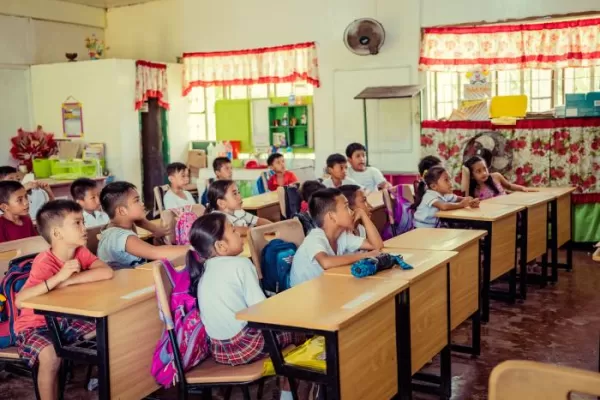
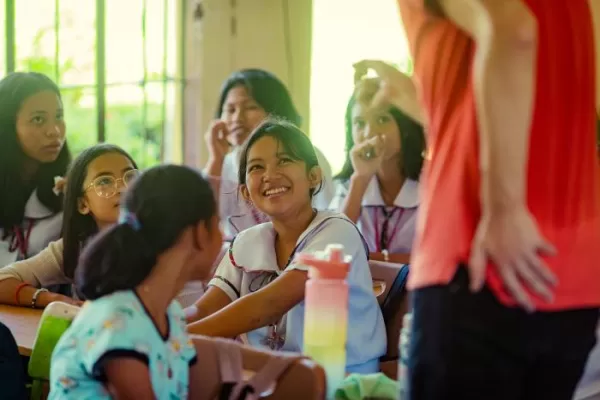
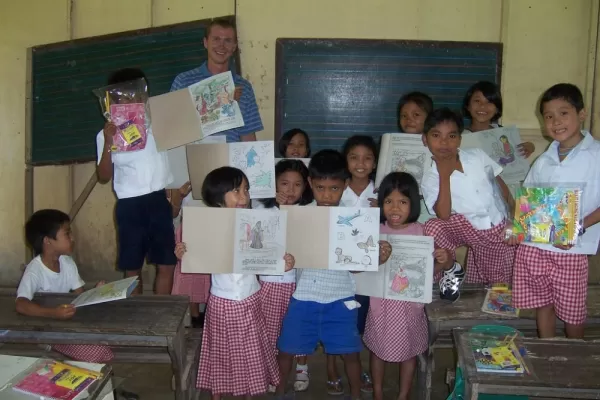
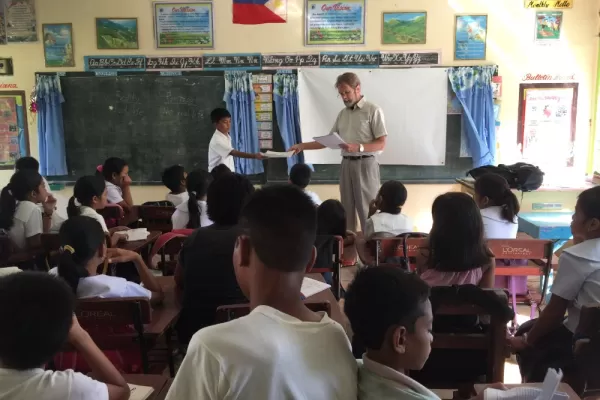
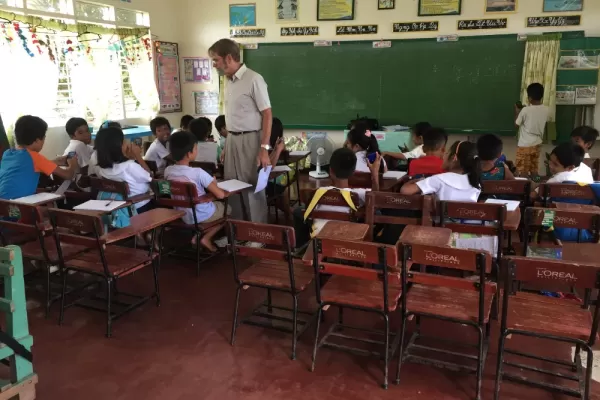
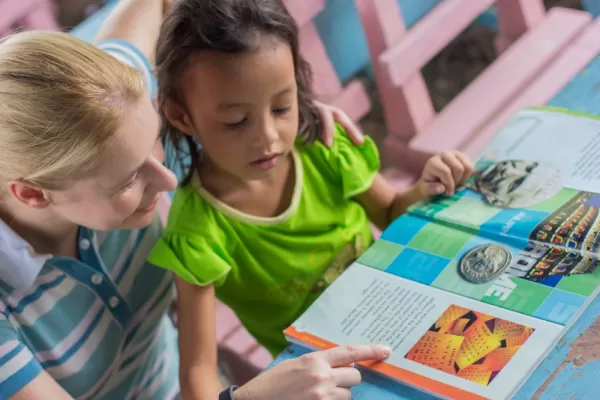
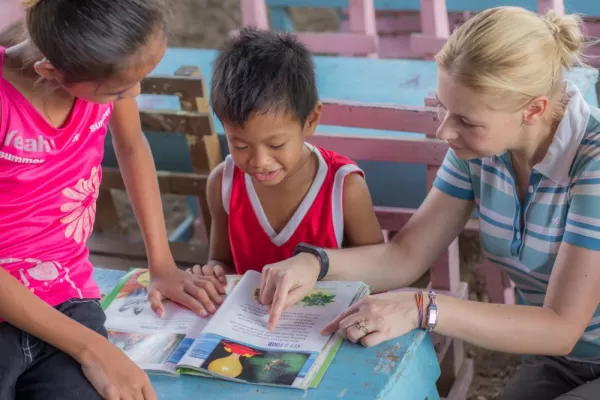
Living
Living
Luchthaventransfer
Vrijwilligers worden opgehaald en afgezet op Tacloban Airport door een lokale vertegenwoordiger. Vrijwilligers kunnen op zaterdag of zondag arriveren voordat ze op maandag beginnen met hun oriëntatie.
Oriëntatie
De oriëntatie vindt plaats op maandag en omvat een uitgebreide dekking van een aantal relevante onderwerpen. Het wordt gegeven door een gekwalificeerd personeelslid van het lokale team. De oriëntatie omvat de volgende activiteiten:
Inleiding tot het programma, de geschiedenis, structuur en organisatie ervan
Inleiding tot de Filipijnen en de Filipijnse cultuur
Wat u kunt verwachten van het vrijwilligersprogramma
Gezondheids- en veiligheidsbriefing
Briefing over gedragsbeleid
Inleiding tot de daadwerkelijke plaatsing, met speciale aandacht voor transport
Introductie van het plaatsingspersoneel en de vrijwilligers
Accommodatie
Vrijwilligers zullen bij gastgezinnen in de regio Tacloban wonen. De gastgezinnen zijn grondig geëvalueerd voordat ze werden geaccepteerd in ons gastgezinprogramma. hebben ervaring met het huisvesten van internationale vrijwilligers. Vóór uw aankomst ontvangt u een profiel met de details van uw gastgezin.
Uw gastgezin verwelkomt u in hun huis en behandelt u als een lid van de familie. Door bij hen te wonen, kunt u de Filipijnse cultuur ervaren en deelnemen aan hun dagelijkse activiteiten. U eet hetzelfde voedsel als zij, hoewel uw gastgezin weet wat buitenlanders graag eten. Als u speciale dieetwensen heeft, is het het beste om ons van tevoren te informeren, zodat we aan uw behoeften kunnen voldoen. U krijgt slechts twee maaltijden per dag, ontbijt en diner. Uw gastgezin voorziet u ook van gefilterd drinkwater, omdat het beter is om geen kraanwater te drinken. Alle gastgezinnen hebben elektriciteit en stromend water. U krijgt een eigen kamer voor uzelf of deelt deze met een andere vrijwilliger. U krijgt ook een klamboe en een elektrische ventilator. De badkamer of het toilet, vaak "comfort room of CR" genoemd, wordt gedeeld met alle gezinsleden.
Badkamervoorzieningen zijn basic en de vrijwilliger zal koude emmerbaden nemen omdat warm stromende douches ongewoon zijn in Filipijnse huizen – maak je hier niet te veel zorgen over, want koude emmerbaden zijn vaak verfrissend na een hele dag in de tropische hitte te hebben gezeten. Tot slot zullen vrijwilligers ook moeten wennen aan het geluid van hanen die kraaien, zelfs voordat de dag aanbreekt.
Maaltijden
Tijdens uw tijd als vrijwilliger krijgt u twee maaltijden per dag (ontbijt en diner) van uw gastgezin. Daarnaast zorgt uw gastgezin ook voor toegang tot veilig drinkwater. Alle maaltijden worden geserveerd met rijst en bevatten doorgaans vis, kip of varkensvlees. Gastgezinnen kunnen rekening houden met speciale dieetbeperkingen, maar we vragen u dit wel in het aanvraagformulier op te nemen.
Tijdens je vrije tijd
Het lokale coördinatieteam in de Filipijnen regelt dat de vrijwilligers op twee excursies gaan. Tijdens een van de trips bezoeken vrijwilligers de lokale bezienswaardigheden zoals de San Juanico-brug, de Santo Nino-schrijn en het MacArthur Landing Memorial Park. Vrijwilligers krijgen de kans om de natuurlijke schoonheid van het tropische eiland Leyte te ervaren.

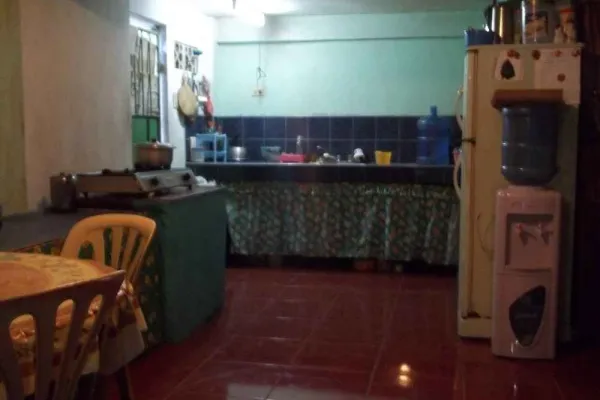
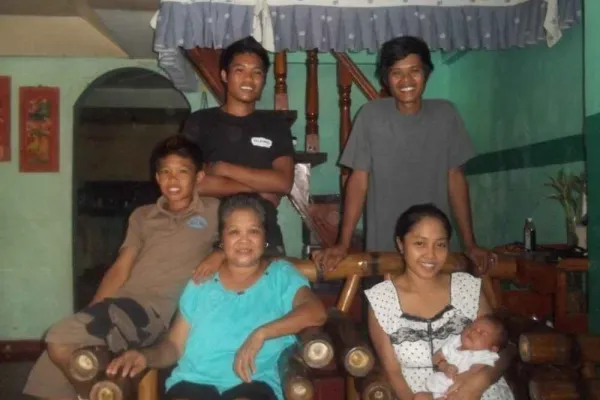
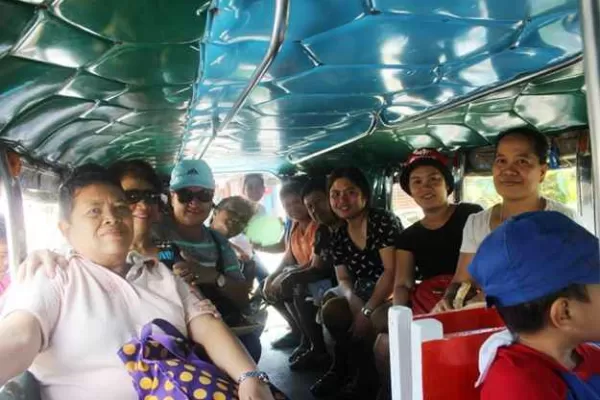
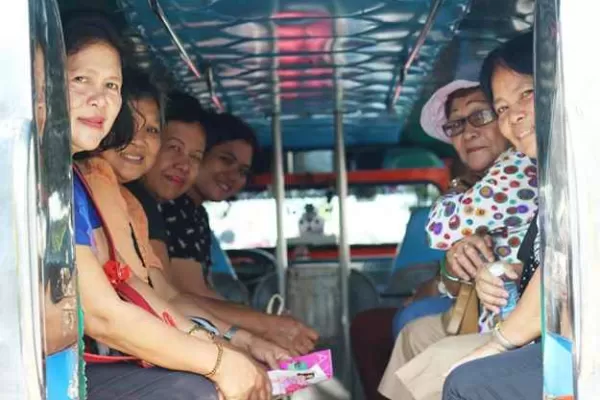
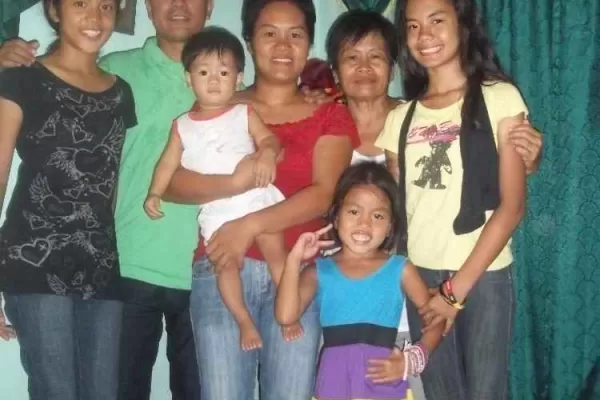
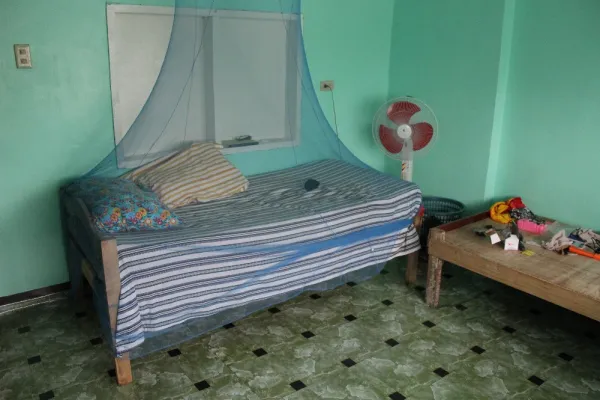
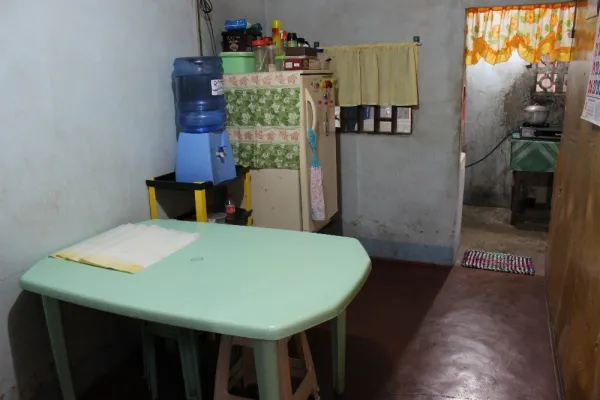
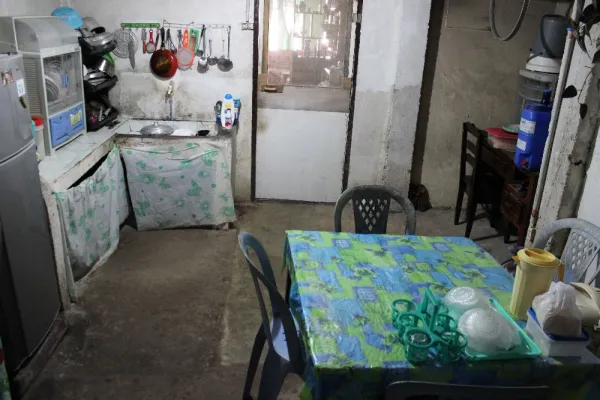
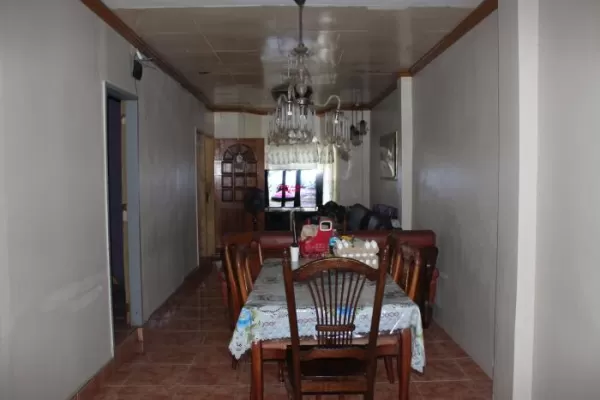
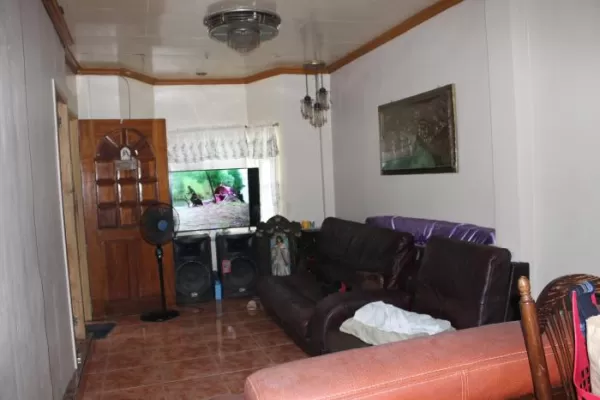
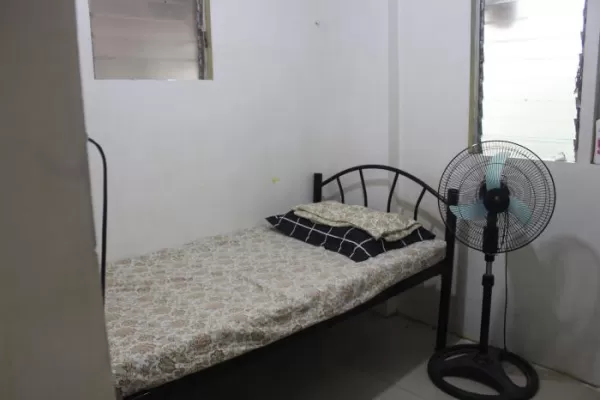
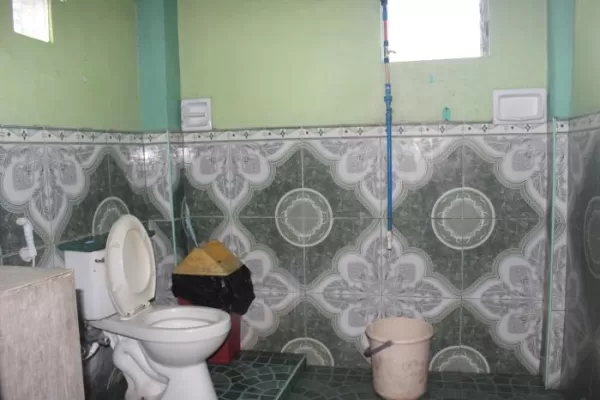
Dates
Dates
januari
05
12
19
26
februari
02
09
16
23
maart
02
09
16
23
30
april
06
13
20
27
augustus
31
september
07
14
21
28
oktober
05
12
19
26
november
02
09
16
23
30
januari
04
11
18
25
februari
01
08
15
22
maart
01
08
15
22
29
april
05
12
19
26
augustus
30
september
06
13
20
27
oktober
04
11
18
25
november
01
08
15
22
29
Available
Filling Fast
Booked Out
Costs
| Duration |
Program Fee
|
Choose your currency
|
|---|---|---|
| 2 Weeks | $890 | |
| 3 Weeks | $1040 | |
| 4 Weeks | $1190 | |
| 5 Weeks | $1340 | |
| 6 Weeks | $1490 | |
| 7 Weeks | $1640 | |
| 8 Weeks | $1790 | |
| Extra Week | $200 |
Please Note: An application fee of is charged over and above the program fee as an application payment. A 5% international banking fee is charged for credit card payments of program fee in USD/AUD.
Waar betaalt u voor?
- Ophalen en afzetten op de luchthaven
- Welkom Oriëntatie – Programma Oriëntatie
Stadstour & Plaatsingsoriëntatie - Accommodatie in een Filipijns gastgezin
- 2 maaltijden per dag
- Gedetailleerd pre-vertrekinformatiepakket
- Projectplaatsing
- 24 uur per dag assistentie en ondersteuning van personeel in het land
- Reis- en ziektekostenverzekering (beschikbaar tegen extra kosten)
- Certificaat van deelname (op aanvraag)
Wat is NIET inbegrepen?
- Visa
- Vaccinaties
- Vluchten
- Lokaal vervoer
- Persoonlijke uitgaven
FAQ's
Application and Program Details
-
What are the program locations in Philippines?
-
The projects are based in Tacloban City on the island of Leyte in Eastern Visayas. Tacloban is approximately 360 miles southwest of Manila and is well-known as the site of U.S. General Douglas MacArthur’s Leyte Gulf Landing, which marked the start of a fierce campaign to regain the Philippines from Japan during World War II.
-
Can I volunteer as part of a group?
-
Yes, you are welcome to take part in Tacloban Volunteer Program as part of a group. We welcome families, friends, high school students, college/university and corporate groups to volunteer together in the Philippines program. We can provide customized group volunteering opportunities depending on the group’s requirements and suitability.
-
Can I know more about Tacloban?
-
Tacloban also is the site of the prestigious San Juanico Bridge, which is the longest bridge in the Philippines. This bridge connects the islands of Leyte and Samar and is a key link in the Pan-Philippines Highway, which connects the Philippines islands of Luzon, Samar, Leyte and Mindanao through a network of roadway, bridges, and ferries.
Tacloban is the capital of Leyte Province and has a population of about 240,000. It is not a popular tourist destination and does not attract many foreign visitors. For this reason, Tacloban offers our international volunteers an opportunity to be immersed in a unique Asian culture. -
When do I need to arrive in Tacloban for my program? What will happen once I arrive in the city?
-
All volunteers need to arrive in Tacloban on the starting date of the program. Volunteers are picked up by the local coordinator or representative from Tacloban airport and are taken to the host family accommodation. Once you come out of the airplane, you will be directed to enter the airport terminal through the back of the building, as the airport is not fully repaired from the damages sustained during the typhoon in November 2013; though it is getting better. At the exit area, the local staff representative will be waiting for your arrival with a sign board. After receiving, you will be taken to the community where most homestays and the main local office are located. The ride is about 10 to 15 minutes long.
-
How long will it take to process my application? Will my application be accepted?
-
Usually, it takes around 10-12 working days for the application to be processed and placement to be confirmed. After the application is accepted, your placement document shall be updated in your account online and you can view the information in your account. The application acceptance depends on the availability of seats in the project as well as the eligibility criteria of the program (age, skills and experience etc.).
-
For how many hours will I volunteer every day?
-
Volunteers usually work for 5 to 6 hours a day depending on their program. You will have the weekend off so you can go to travel on weekends. However, volunteers need to be flexible, open minded and understand that work requirements can change as well on certain occasions.
-
When should I apply for the volunteer programs in Philippines?
-
For programs in the Philippines, it is advised to apply as soon as possible after you have decided on your choice of program and the desired dates. Every program has limited number of spots available and due to this reason, volunteers are requested to book their spot as soon as the dates are decided. We abide by the first come first serve policy.
-
Are there any necessary requirements to participate in the Philippines -Tacloban City volunteer programs?
-
Below are the necessary requirements to participate in the Philippines volunteer projects:
Volunteers must be 18 years or older at the time of joining the project.
Volunteers need to have an open mind and flexible attitude for working in a new and different environment. The volunteers should bring energy and enthusiasm to make a difference.
Participants must be in good health.
Participants need to provide a copy of their Resume/CV as well as Criminal Background Check Report for those participants working in projects with children.
Health and Safety
-
How safe is the Philippines and Tacloban City in general?
-
Tacloban City is a tourist friendly city and Philippines is a largely safe country. The Volunteers are, however, advised to travel in groups, not venture alone at nights and take the basic safety precautions. All volunteers must consult the coordinators before planning a night out and take the necessary safety tips, too. Leyte Island is generally safe for travelers. As with any other country, tourists and visitors must always take precautions when traveling abroad.
-
What immunizations/vaccinations will I need?
-
We recommend you to consult your physician or travel doctor before traveling to the Philippines. However, we recommend you take general vaccinations like
1. Hepatitis A and B
2. Typhoid
3. Malaria tablets
Yellow Fever vaccination is required for travelers who are arriving from, or have transited through, countries with risk of yellow fever transmission. -
Do I need to buy health insurance?
-
Yes, for all participants it is mandatory to have a travel medical insurance. Volunteers have the option to purchase Travel and Medical Insurance at a nominal extra cost from Volunteering Solutions. To provide the best option to our participants, we offer comprehensive insurance coverage in collaboration with a leading insurance provider.
Accommodation and Living
-
Would I have free time during my program ? Can I do sightseeing during my program ?
-
Volunteers do get weekends free for doing sightseeing and socializing with other volunteers in the program. Tacloban City has amenities for almost every kind of traveler, from the Robinsons Shopping Mall to beautiful sun-swept beaches on the outskirts of the City. What you get up to during your time off is completely up to you, however, our staff can provide you with help in planning your trip.
Volunteers also enjoy relaxing at the many beach resorts, most predominantly the Tadjaw beach resort near the municipality of Tolosa. For those of you that are looking further afield for more exciting opportunities, you can plan a weekend getaway to Cebu, or to visit the Chocolate Hills on Bohol or the Sohoton Caves on Samar. -
Will I have access to clean drinking water?
-
All homestay families will provide clean drinking water for their volunteers. Mineral water is also widely available in small shops throughout the neighborhood as well as at larger grocery stores. When being served water at restaurants it is always important to ask if the water is mineral water and if the ice is made from tap water.
-
Are there more expenses once I arrive in Tacloban City?
-
Your program fee does not cover your personal expenses. You will need to cover yourself for your personal expenses, such as local transport, telephone, the internet, shopping, sightseeing etc. However, you should carry around $50-$70 per week for your basic personal expenses. This amount can vary and you would need a higher amount if you go on different weekend trips out of town.
-
What all are included in the fee I pay?
-
You Program Fee includes your Pre-Departure booklet, airport pick-up once you arrive in the Philippines, orientation about the project and a city tour on the first day. It also includes your accommodation on same gender sharing basis as well as meals as mentioned in the program schedule.
We can arrange for airport drop at an extra cost. -
How do I get to the program location?
-
Your project coordinator will take you to your placement and introduce you to everyone after giving you a basic orientation about the program/city/culture etc.
Before starting your project, you will be given an extensive orientation that will include how to get to, and back from, your project; how to get to, and back from the downtown - the location of ATMs, restaurants, souvenir stores, and where money changers are, as well as a brief introduction to Filipino culture and etiquette.
The 'Jeepney', a colorful bus made from former U.S. Service vehicles is the most common form of transportation in the Philippines and covers short to medium sized journeys. This is the most common mode of transport for the volunteers in Tacloban.
For longer journeys, there are conventional buses, whilst motorcycles, tricycles, and private hire taxis, called 'Spider Cabs', can also be used for midrange journeys. If you're looking to just go down the road, you can ride a pedicab, a converted bicycle with attached sidecart. -
Can I know more about accommodation and food arrangements?
-
Volunteering Solutions arranges accommodation for volunteers with a local Filipino host family in the local community. Staying with a local family is exciting and a part of the cultural experience and immersion as you get to know about their way of life, customs and traditions.
These are screened, well respective members of the local community who have been accommodating volunteers for many years. You will be given either a private or shared bedroom in which you will have a secure luggage storage (bring your own padlock), mosquito neck and electric fan. You will also have access to safe drinking water.
We ask volunteers to be considerate regarding their electricity consumption.
Volunteers will be provided with two meals a day (breakfast and dinner), these meals will vary but will usually be traditional Filipino meals, be prepared to eat a lot of rice! -
Will I have access to the internet?
-
The local partner office currently has internet access and wifi capabilities, but volunteers should be mindful of their internet use since the staff members are also sharing the internet connections for general business operations. Volunteers can also visit a handful of coffee shops in downtown Tacloban (our volunteer coordinator will show you how to get to and from downtown during your city tour), which is a 15-25 minute ride from your homestay, that have wifi connection, as well as small internet cafes where you can pay per hour for computer/internet use.
Flights and Visa
-
Do I need a Visa to travel to Philippines?
-
Citizens of most countries can enter the Philippines and get a Visa on arrival at the airport for a period of 30 days. Your passport should be valid for a minimum period of 6 months from the date of entry into the Philippines. Visas can also be extended while you are in the Philippines. Volunteers participating in the long-term programs can apply for Visa beforehand at the nearest Philippines embassy.
-
What are the recommended airlines to fly to Tacloban, Philippines?
-
You will need to arrive in Manila and from there take a connecting flight to Tacloban City. Manila is well connected with direct flights from major international locations. The Daniel Z Romualdez Airport (Airport Code: TAC) in Tacloban is the main gateway from Manila and Cebu to the Visayas Region. AirAsia Zest, Pal Express, Philippine Airlines, and Cebu Airlines have flights from Manila to Tacloban.
Connect with Past Volunteers
-
How can I connect with past Volunteering Solutions alumni as well as other former and current volunteers ?
-
We encourage volunteers to get in touch with former Volunteering Solutions participants and also other program participants joining our projects. You are recommended to join thehttps://www.facebook.com/VolunteeringSolutions/">; Volunteering Solutions Facebook Page or Facebook">https://www.facebook.com/groups/VolunteeringSolutions/">Facebook Group to communicate with other participants.
To read alumni interviews from past participants, visit the Meet">https://www.volunteeringsolutions.com/meet-a-volunteer">Meet a Volunteer section on our website.


























